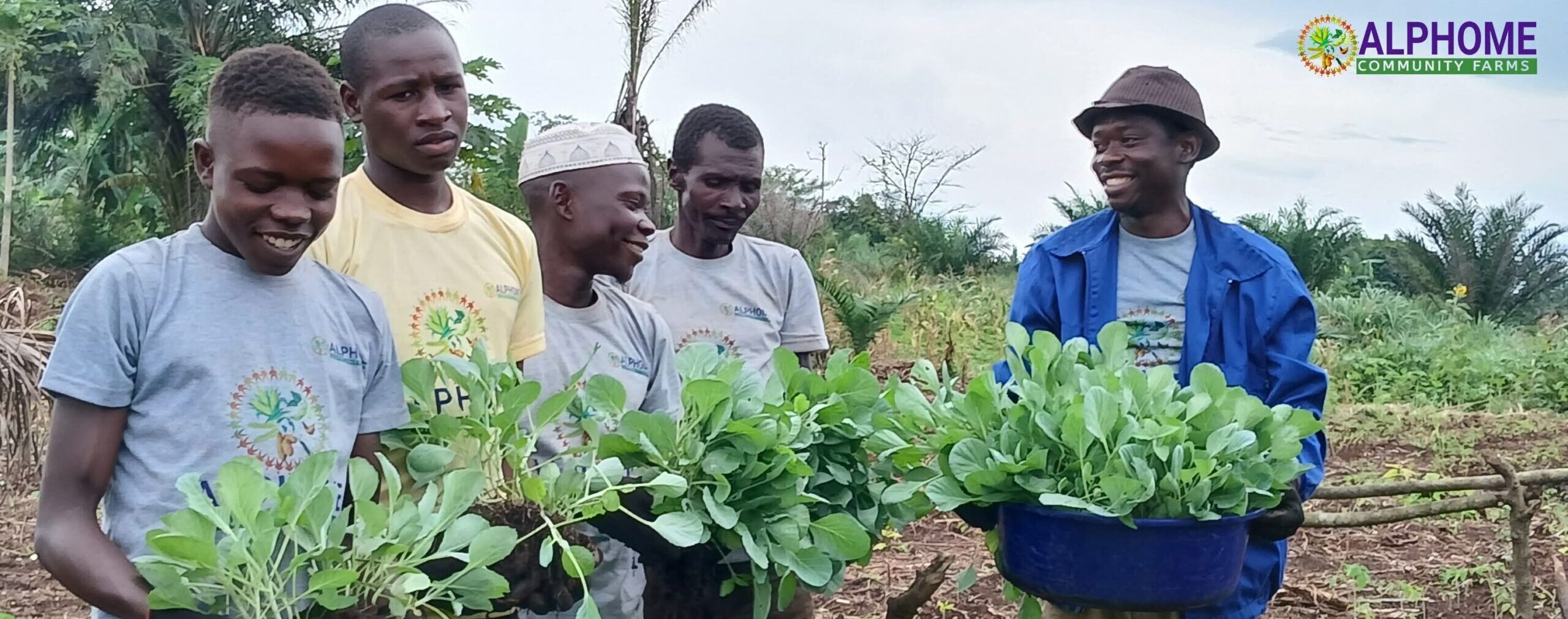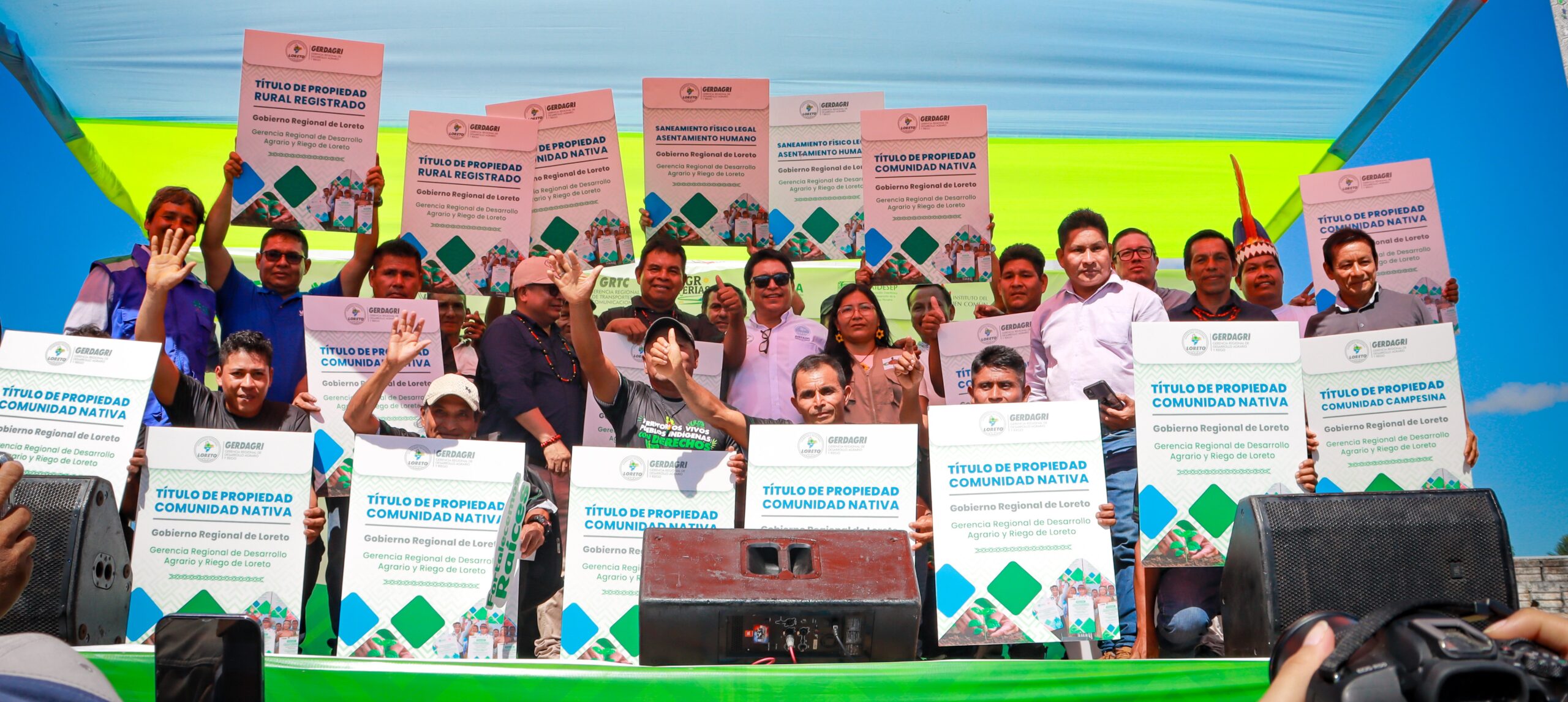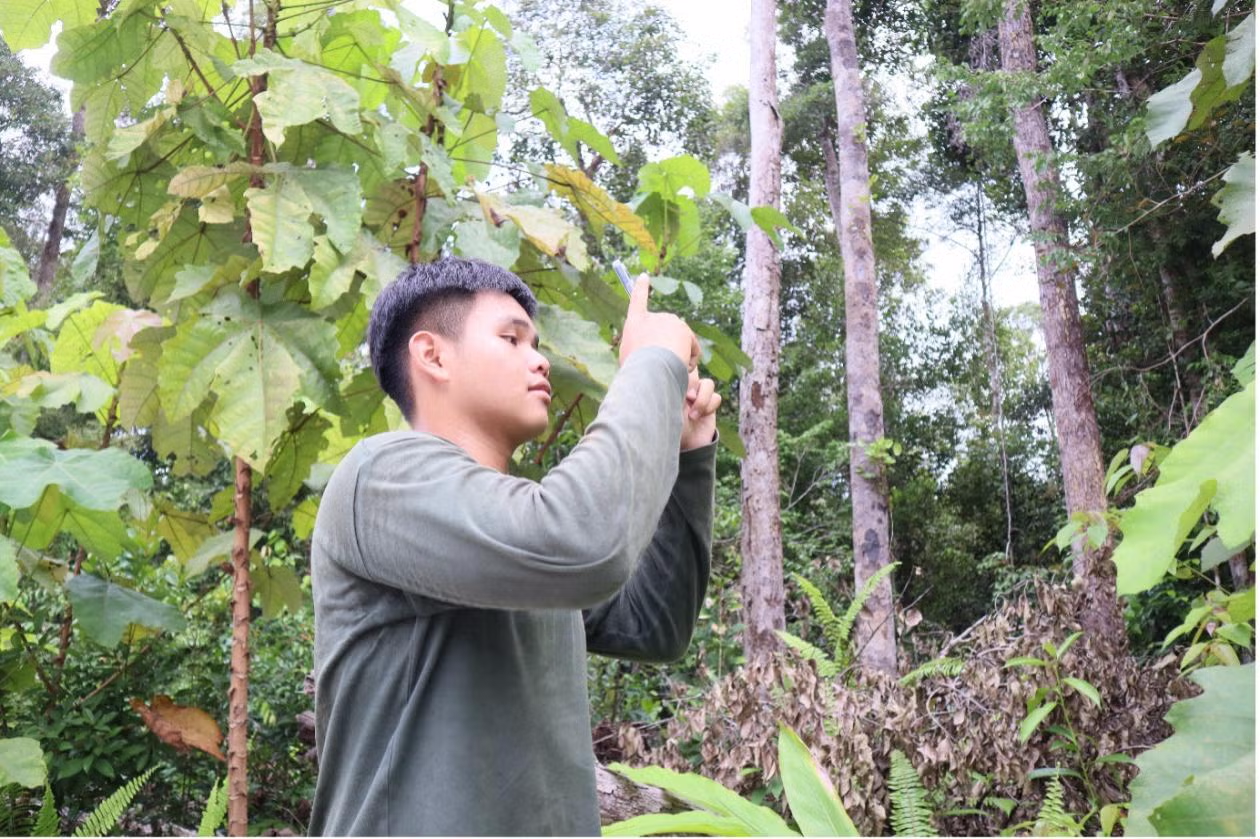Voices of Global Forest Watch: Serge Bondo Kayembe, Observatoire de la Gouvernance Forestière
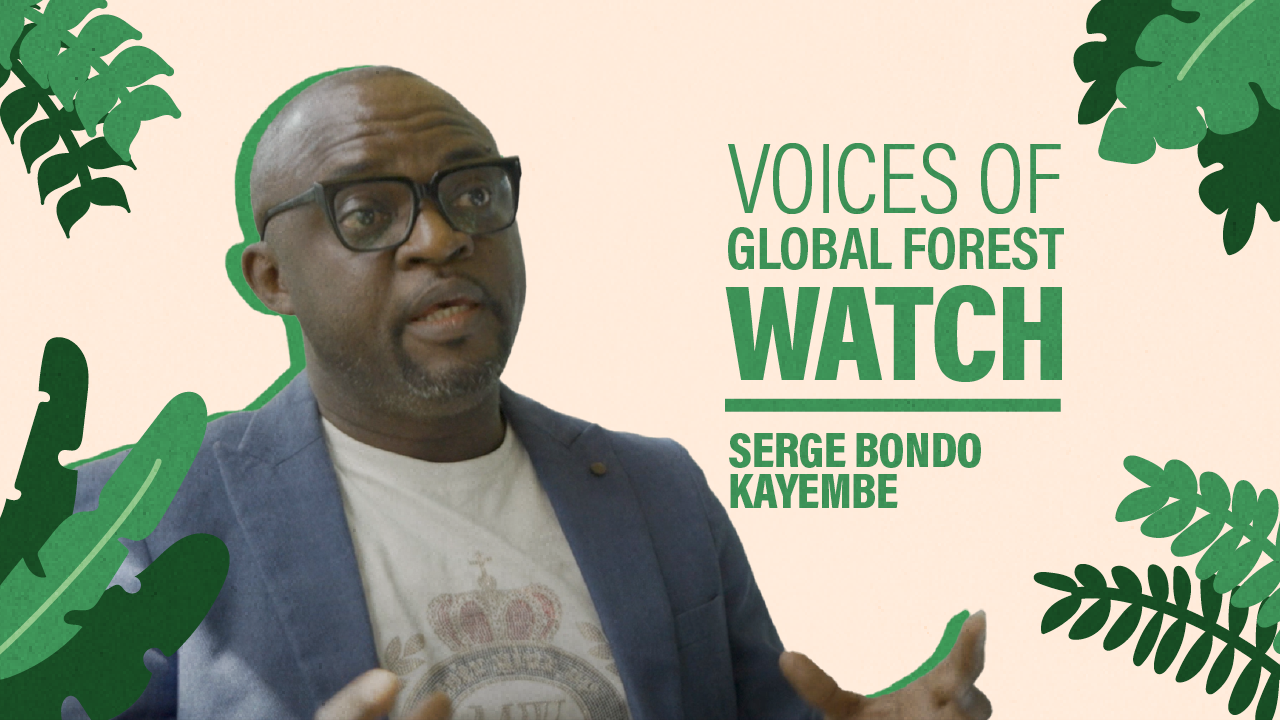
A decade ago, the launch of Global Forest Watch (GFW) ushered in a new era of accountability and transparency around monitoring and protecting the world’s forests. To celebrate 10 years of impact, our Voices of Global Forest Watch series will highlight successes of GFW users, partners and community members throughout the year. We invite you to read, watch and share the stories of exceptional leaders in forest monitoring who have played a pivotal role in protecting forests everywhere.
“Forests are important as they play several roles. I consider forests to be the factor that allows us to stay alive.” – Serge Bondo Kayembe, Observatoire de la Gouvernance Forestière
Serge Bondo Kayembe, born in Kinshasa, the Democratic Republic of the Congo (DRC), developed a passion for forest conservation at a young age. Growing up, he worked alongside his family in a forested area, where he became deeply aware of the importance of protecting these vital ecosystems.
“Protecting forests is not only beneficial for us living in forests and around forests,” said Serge, “but also for others beyond our countries where wood is produced, where logging is done in tropical areas.”
Serge works with the Observatoire de la Gouvernance Forestière (OGF), a nonprofit working to protect DRC’s forests through resource monitoring, legislation and governance oversight using tools like GFW to detect and report illegal activities, which are further investigated in field missions. This monitoring is essential to ensure that forest laws are respected and that forests are protected.
Serge is proud of the work OGF has achieved so far, including receiving government support through a Memorandum of Understanding (MoU) that enables OGF to act as an independent third party monitoring government forest-related activities. Thanks to this MoU, OGF’s work has gained acceptance from DRC’s Ministry of Forestry. This collaboration and tools like GFW have enabled OGF to secure more responsible and transparent management of forest resources by making information on forest exploitation accessible and governance processes clear and open. In a major achievement, this independent monitoring has led to proposed alternatives to protect critical areas.
For example, a DRC provincial government gathered key stakeholders to develop strategies for protecting the Luki Biosphere Reserve, a protected area in Central Congo Province. The area faces significant threats of deforestation due to charcoal production, agriculture and illegal logging, both from forestry companies and from local communities.
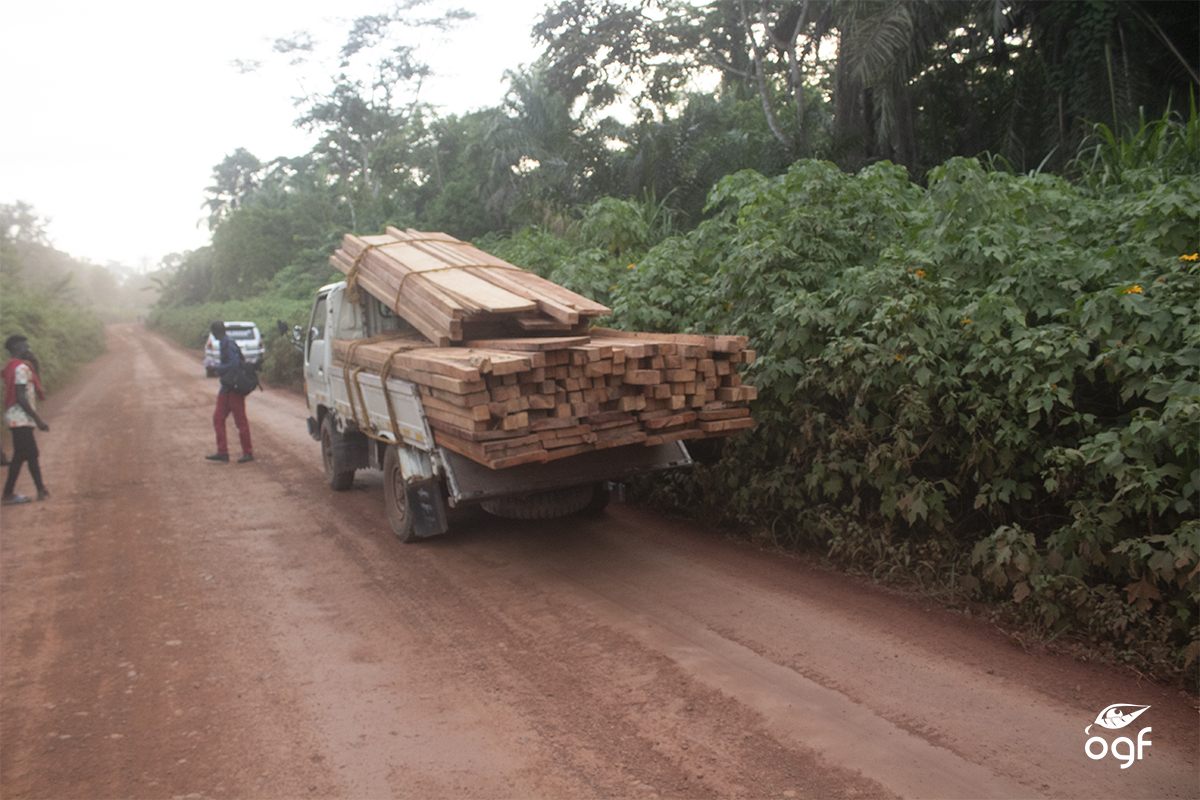
OGF used GFW’s deforestation alerts to identify the different causes of deforested activities, and used this information to prepare proposals for alternative activities that allow communities to sustainably meet their economic needs without causing deforestation and biodiversity loss in the reserve. This led to meetings between authorities and local stakeholders to develop strategies for protecting the reserve, introduce alternative economic activities for local communities and strengthen monitoring measures.
OGF actively involves local communities in this kind of work by raising awareness of the negative impacts of deforestation and providing trainings on how to protect natural resources. Through these trainings, OGF supported communities to monitor forests and report any suspicious activity. This participatory approach has strengthened the role of communities in conserving the reserve, making them more vigilant and proactive in protecting their environment.
In 2023 and 2024, with support from GFW’s Small Grants Fund (SGF), OGF worked on building the skills of a network of independent forest monitors, which currently consists of 25 organizations, to improve environmental monitoring and make conservation initiatives in the reserve more sustainable. OGF organized training courses for local forest monitors, government officials in charge of forest control and other civil society actors, resulting in more sustainable and participatory forest management.
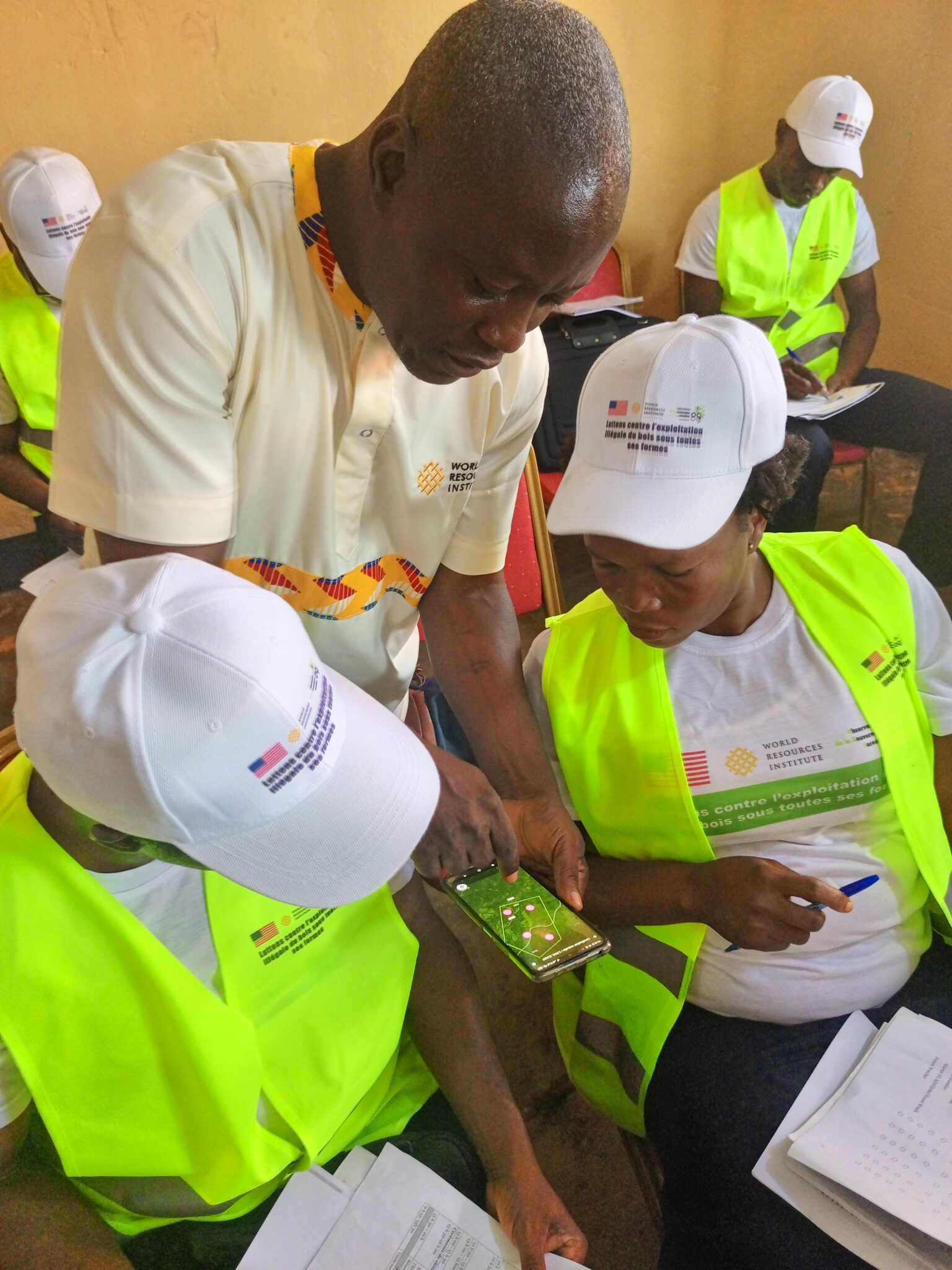
“These tools allow us to access documentation, i.e. all logging titles, cutting permits, concession contracts,” Serge said, explaining how they use WRI’s Open Timber Portal and Forest Atlas for planning, while GFW’s near-real-time deforestation alerts are crucial for execution, helping forest monitors in the field identify and investigate the causes, such as bushfires or large-scale logging.
These tools also provide detailed, reliable, publicly available evidence that they can submit to authorities. This information has helped authorities to better understand the scale of the problem and take appropriate action.
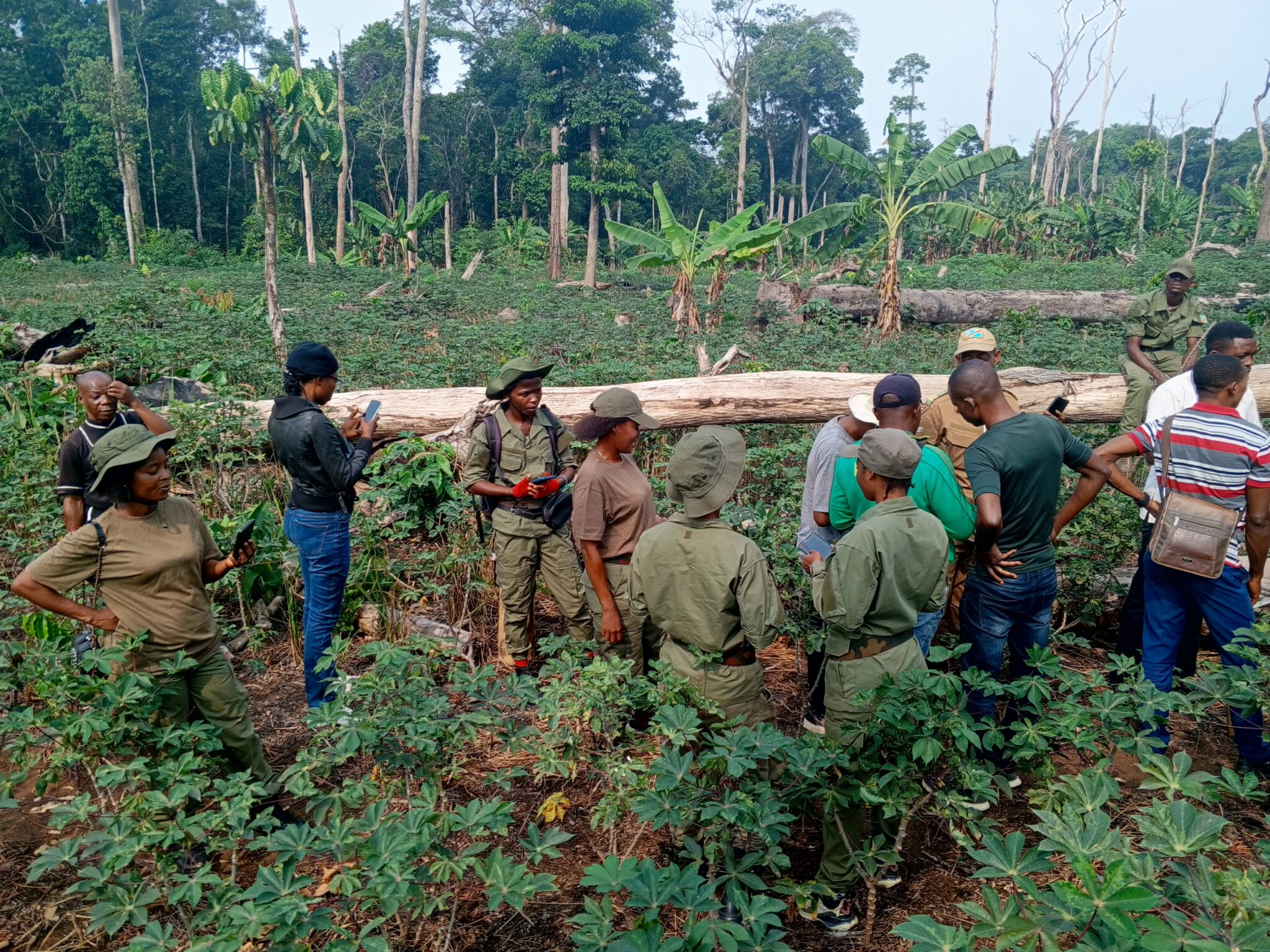
In the Luki region, use of deforestation alerts has contributed to rapid detection and response to illegal activities, leading to a positive impact to protect forests and biodiversity. As a result, OGF has been able to not only improve monitoring and documentation of illegal activities, but fostered collaborations with local authorities for better law enforcement.
In addition to their work in Luki, OGF has made significant impacts in other regions. They contributed to a significant reduction in deforestation in several critical areas of the DRC through collaborations with various NGOs and the government. They have worked to ensure that local communities in many areas of the DRC have access to equitable benefits from forest resources, including the creation of social infrastructure. And their efforts have led to important legislative reforms aimed at strengthening forest protection and improving governance of natural resources.
The challenges for protecting DRC’s critical forests remain significant, and Serge recognizes that he, OGF, and the communities they work with have a long way to go in this ongoing fight for forest conservation and the rights of forest communities.
“At the beginning of my career, I thought it was going to be easy. But over the years, I’ve been doing this job for 12 years, I feel like I just started.”
